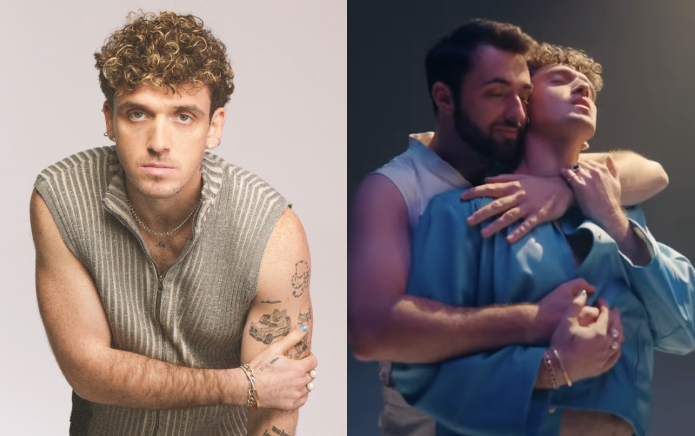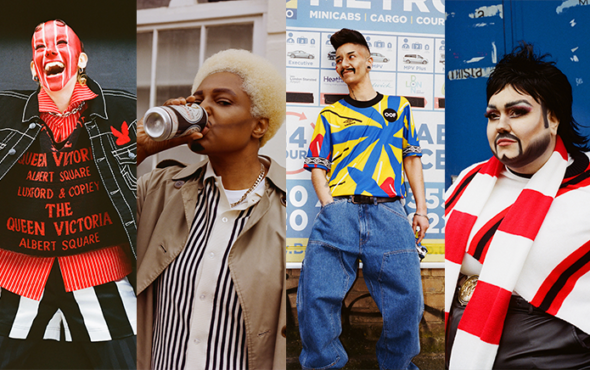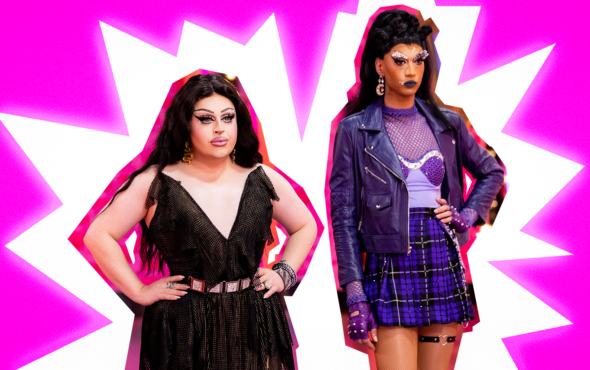
There’s nothing quite like the buzzing anticipation of a festival lineup. There’s the speculative watercooler chat of who will feature on the roster to the silent, hopeful pleading that one of your favourites will wind up on music’s biggest stages. So, when one of this year’s major UK festivals (Glastonbury) unveiled its headliner stars, we were all left disheartened. Again, we were treated to an all-male merry-go-round of musicians.
Now, it’s true, Elton John is closing out an illustrious career and the timing of his slot feels warranted. However, it’s also worth noting that major LGBTQ+ names have been left off the headliner bill for quite some time. David Bowie had his slot in 1971 and headlined, again, in 2000. The Smiths led the bill in 1984, with queer duo The Communards a few years later in 1987 – but do you see the problem? Meanwhile, the remainder of this year’s slots have been handed to Arctic Monkey and Guns ‘N’ Roses. Glastonbury’s issue of inclusivity has been chalked up to a “pipeline problem” with the wider industry put on blast. As the festival’s co-organiser, Emily Eavis, shared this in a statement: “We’re trying our best so the pipeline needs to be developed. This starts way back with the record companies, radio. I can shout as loud as I like but we need to get everyone on board.”
Eavis is right. Everyone does need to get on board and it’s become a tiresome wait. The question of where to place queer talent feels like a misnomer. When franchises of LGBTQ+ talent (drag, art, literature) continue to flourish, the required space for musicians is well overdue. Glastonbury has had a hard time with its headliners, but the queer spirit hasn’t been entirely lost. This year boasts some queer talent in its lineup (Lil Nas X, Shygirl, Måneskin and Cat Burns) and the illustrious festival is also hosting its well-known NYC Downlow club event which houses subversive, intriguing talent from the queer underground. The event takes place in a “replica of a seedy New York bathhouse-turned-meatpacking warehouse circa 1982”.
And, while the efforts of paying homage to a large cultural faction of queer talent in this space should be applauded, it also writes off those that don’t gravitate to these spaces (or genres). Sure, there’s space for LGBTQ+ rave nights or drag-fuelled escapism but the multitude of queer self-expression remains unobserved. It’s a welcomed space at Glastonbury and proudly so, but most festivals have plentiful stages dedicated to genres. Maybe it’d be worth offering queer talent a shot at the stages as well as the funky dance-crazed NYC Downlow.
Today, with the cost of living crisis wading in, fans will need more than a one-off box-ticked inclusion act to get them to part with their money. This year we’ve seen festivals learn from those before them and move with the times. Take Primavera Sound, a music festival spanning Barcelona, Madrid and more, which reworked its strategy in early 2019. With a line-up including headliners Halsey and the Pet Shop Boys as well as enlisting Christine and the Queens, Japanese Breakfast, Arlo Parks, Kelela, Yves Tumor, Måneskin and more. As Joan Pons, co-organiser of Primavera Sound puts it, a relevant roster falls to “listening to your audience” as much as keeping track of new talent.
“There is not much secret in making an inclusive and gender-balanced lineup like ours. You just have to be willing to do it,” he tells GAY TIMES. “We no longer do just a gender-balanced lineup, but last year and this year (2023) we have already opened a third category with artists who do not identify with any genre precisely because we also see that reality is leading us there as well.”
Reading and Leeds Festival, another UK event, is a fellow music staple that has come under fire. With headliners Sam Fender, The Killers, Lewis Capaldi, Imagine Dragons and Billie Eilish, it’s one that lacks a major LGBTQ+ presence. While it has a fruitful list of queer artists (Steve Lacey to Ethel Cain) due to make an appearance, its leading slots leave you wanting more. In the wake of festivals being largely co-opted by white, male musicians, Eavis’ sentiment serves as a heft reminder; the industry must change.
But, change is gradual and, for now, where does that leave us and the legions of LGBTQ+ fans? Well, there are a few festivals taking the right steps. UK-based festivals Wilderness and Gunnersbury Park, a series of single-stage concerts, have put the queer community front and centre. Boygenius, MUNA and Ethel Cain are set to reign chaos in Gunnersbury as main acts, while rural retreat Wilderness have given Christine and the Queens and The Chemical Brothers top spots. The festival will also include Arlo Parks, Honey Dijon, and Joesef. These events alone last as show-stealers, proving what can happen when queer talent is given a shot as much as the rest.
While other events (Madrid’s Mad Cool or Denmark’s Roskilde) have offered leading slots to rap-pop titan Lil Nas X, there’s no one quite doing it like Lavender Wild Festival. A newly sprung event, this ‘one-day festival of queerness’ in Toronto is unlike anything else. Backed by industry giants Live Nation Canada, Lavender Wild Festival is a sanctity for LGBTQ+ talent and creatives. The seed for such a festival came from Alex Simpson, Festival Manager at Live Nation Canada, who realised there was a lack of big stage opportunities for queer artists. “I wanted to create an all-encompassing environment made by our community for our community. A place where fans would feel seen with the little details around the site. This goes beyond just our all-queer lineup as we have also hired 2SLGBTQ+ folks for various roles across the festival,” she tells GAY TIMES.
Alex’s vision doesn’t end there either – the festival manager wanted to unite fans in a shared, safe experience. “We wanted to give members of our community the opportunity for exposure and recognition. This festival is about connection, celebration, and music. It’s a day to create new friendships, sing along to your favourite queer artists, make memories, and celebrate with those we love.”
As Lavender Wild has proved, it’s not impossible to integrate LGBTQ+ artists into music events, especially outside of Pride. A notable one is Coachella which has a history of pre-festival stages that provide queer musicians with exposure. Let’s not forget the main event itself which now boasts a live stream. The inclusion of Coachella, however, has remained a divisive one, as the event’s conservative owner, Philip Anschutz, has had his values publicly criticised. That said, a contender for Coachella’s crowd falls to Maryland’s fan-favourite music festival, All Things Go. An event that deems itself “rooted in inclusivity”, the festival leads with a bill made-up largely of female and LGBTQ+ artists. This year’s headliners include Boygenius, Maggie Rogers and Lana Del Rey. High-ranking slots have also been given to Carly Rae Jepson, MUNA, Beabadoobee, Arlo Parks, Fletcher, Samia, Ethel Cain and more. If you ask us, this is the people’s LGBTQ+ Glastonbury.
With live music back in action, many of us are scrambling to make our favourite shows. Whether you’re grafting for a ticket to Taylor Swift’s Eras Tour or Beyonce’s Renaissance extravaganza, there’s something unifying about finding queer comfort during a show. As for festivals, nothing is better (and as exhausting) than darting back and forth between acts you cannot miss.
So, it’s time to put the questions to the industry — is it willing to do better for queer talent? We’ve got plenty of big hitters – Lady Gaga, Doja Cat, Halsey, Ashnikko – and we’re tired of the lacklustre lineups. We shouldn’t have to wait for Mighty Hoopla or the off-chance of Reading and Leeds getting Willow and Meet Me @ The Altar to have a good time. Because, after all, for all the Sam Fenders and Ed Sheerans, there’s a breakthrough LGBTQ+ artist, with just as much talent, pulling on the same notes and bringing in a crowd. So, next time you’re thinking of booking a major slot, don’t wait until they’re on their farewell tour to bring them to the headline stage.



